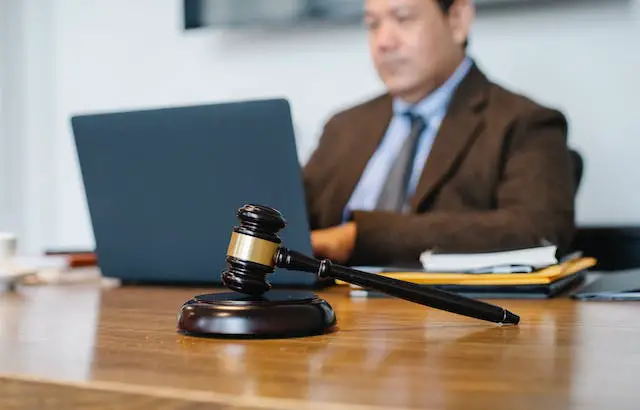
How to Choose the Right Criminal Defense Attorney
The contents of this web page are for informational and educational purposes only, and nothing you read is intended to be legal advice. Please review our disclaimer before taking action based upon anything you read or see.
In the complex landscape of legal proceedings, the choice of a defense attorney is a pivotal decision that carries profound implications for the outcome of a case. Selecting the right defense counsel transcends the realm of mere representation—it evolves into a strategic partnership that can decisively shape the trajectory of your defense and influence your future.
This comprehensive guide delves into the critical considerations surrounding the selection process, offering insights into the qualities to seek in a defense attorney and effective methods for assessing their expertise.
The stakes are high when facing legal challenges, and the right defense attorney can be a beacon of guidance through the complexities of the justice system. Beyond legal expertise, a skilled attorney embodies qualities that can make a substantial difference—communication skills, reputation, client-centered approach, and a commitment to your best interests.
As we navigate the nuanced landscape of defense representation, this guide underscores the profound impact that an informed choice of a defense attorney can have on the overall outcome of your legal proceedings.
Choosing a defense attorney is a multi-faceted process that requires a discerning eye for specific qualities and a keen assessment of legal expertise. This guide will walk you through the essential qualities to look for in a defense attorney, emphasizing factors such as legal specialization, communication skills, reputation, and a client-centered approach.
Additionally, we will explore effective methods for assessing an attorney’s experience and expertise, including case history, legal recognition, client testimonials, and the importance of a personal consultation. By the end of this guide, you will be equipped with the knowledge to make an informed decision when selecting the right defense attorney for your unique legal needs.
Qualities to Look for in a Defense Attorney

Legal Expertise and Specialization:
Understanding the specific area of criminal law is paramount. A proficient defense attorney should possess expertise aligned with the charges at hand.
Assessing the attorneys’ track record in handling similar cases offers insights into their ability to navigate specific legal complexities and challenges.
Communication Skills:
Open and transparent communication is fundamental. A skilled defense attorney should maintain clear, honest communication channels with clients.
Explaining complex legal concepts comprehensibly ensures that clients are well-informed and actively participate in their defense strategy.
Reputation and Professionalism:
Investigating the attorney’s reputation within the legal community provides a glimpse into their standing among peers and adversaries.
Evaluating professional conduct and ethics is crucial. A reputable defense attorney upholds the highest ethical standards throughout legal proceedings.
Client-Centered Approach:
Demonstrating a commitment to the client’s best interests is a hallmark of an effective defense attorney. The attorney should prioritize the well-being and objectives of the client throughout the legal process.
Accessibility and responsiveness are key components of a client-centered approach. A reliable defense attorney can readily address client concerns and provide timely updates on case developments.
Importance of a Personal Consultation: Nurturing a Strong Legal Alliance
Initial Consultation Process:
Setting up an Initial Meeting: Initiate the process by setting up an initial meeting with the defense attorney. This face-to-face interaction provides a crucial platform for understanding each other’s perspectives and expectations.
Importance of Discussing Specifics: Emphasize the importance of discussing the specific details of the case during the initial consultation. A comprehensive exploration of the case’s intricacies ensures that the attorney gains a nuanced understanding of your situation.
Asking Pertinent Questions:
Inquiring about Defense Strategies: Pose pertinent questions about the attorney’s approach to defense strategies. Understanding the proposed course of action allows you to align expectations and assess the viability of the attorney’s methods.
Clarifying Fees, Timelines, and Outcomes: Seek clarity on essential aspects such as fees, timelines, and potential outcomes. Transparent communication about financial expectations and the anticipated trajectory of the case fosters trust and informed decision-making.
Gut Feeling and Compatibility:
Trusting Instincts: Acknowledge the role of instincts in the decision-making process. Trusting your gut regarding personal comfort and compatibility is integral to establishing a harmonious attorney-client relationship.
Significance of a Strong Relationship: Emphasize the significance of a strong attorney-client relationship. A collaborative and trusting alliance ensures effective communication, facilitating a more resilient defense strategy.
Additional Considerations in the Selection Process
Legal Fees and Payment Plans:
Understanding Fee Structure: Understand the attorney’s fee structure clearly. Transparent communication about costs ensures alignment with your budgetary constraints.
Exploring Payment Plan Options: Inquire about payment plan options, if applicable. Accessibility to flexible payment arrangements can alleviate financial stress during legal proceedings.
Accessibility and Communication During the Case:
Establishing Communication Expectations: Set clear expectations for ongoing communication. Open communication channels enable timely updates and foster a collaborative environment throughout the legal process.
Ensuring Accessibility: Confirm the attorney’s accessibility, particularly during critical phases of the legal process. Knowing that your attorney is readily available provides reassurance and strengthens the overall effectiveness of the attorney-client partnership.
My Opinion
Choosing the right criminal defense attorney is crucial for ensuring a fair legal process. It involves considering factors such as the attorney’s experience, area of specialization, reputation, communication skills, and understanding of your case.
A well-chosen attorney can significantly impact the outcome of your case, providing expert guidance and a robust defense. Remember, the right legal representation is key to navigating the complexities of the criminal justice system effectively.

I’m a driven and accomplished law graduate and post-graduate, passionate about sharing my legal expertise via my blog. I hold a Bachelor’s degree in Law from the University of London (UK) and a Master’s in Law from the University of Derby (UK). Both gave me the foundational knowledge and skills to excel in my chosen career path.
Throughout my academic journey, I have gained extensive knowledge in various fields of Law, including Corporate and Business Law in the USA, Criminal Law, International Law, US Copyright law, and most importantly, American Constitutional law.


Comments are closed.